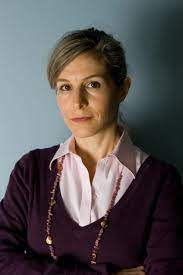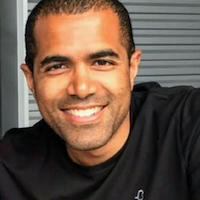Plenary sessions
 Prof. Judith P. Klinman is Professor in the physical sciences at the University of California, Berkeley since 1978. In 2012, she was awarded the National Medal of Science by President Barack Obama. She is a member of the National Academy of Sciences, of the American Academy of Arts and Sciences, of the American Association for the Advancement of Science, and of the American Philosophical Society. Judith is concerned with the nature of enzyme catalysis. At the current time there is a paucity of information concerning reaction barrier shapes at enzyme active sites, as well as the contribution of protein dynamics to bond cleavage processes An extremely valuable approach to these questions involves the detection and quantitation of hydrogen tunneling in enzymatic reactions. The Klinman group has amassed evidence that room temperature nuclear tunneling occurs among a long list of enzymatic reactions.
Prof. Judith P. Klinman is Professor in the physical sciences at the University of California, Berkeley since 1978. In 2012, she was awarded the National Medal of Science by President Barack Obama. She is a member of the National Academy of Sciences, of the American Academy of Arts and Sciences, of the American Association for the Advancement of Science, and of the American Philosophical Society. Judith is concerned with the nature of enzyme catalysis. At the current time there is a paucity of information concerning reaction barrier shapes at enzyme active sites, as well as the contribution of protein dynamics to bond cleavage processes An extremely valuable approach to these questions involves the detection and quantitation of hydrogen tunneling in enzymatic reactions. The Klinman group has amassed evidence that room temperature nuclear tunneling occurs among a long list of enzymatic reactions.
 Prof. Jack Tuszynski holds the position of professore ordinario (Full Professor) in biomedical engineering at the Politecnico di Torinoin Turin, Italy. He is also a Fellow of the National Institute for Nanotechnology of Canada. Between 2005 and 2020 he served as the inaugural Allard Chair and Professor in Experimental Oncology at the Cross Cancer Institute and since 1988 has been a professor in the Department of Physics at the University of Alberta, Edmonton, Canada. He held visiting professorship in China, Germany, France, Israel, Denmark, Belgium, Poland and Switzerland. Jack Tuszynski heads a multi-disciplinary team focused on the rational drug design for oncology, neurology, and immunology applications using computational biophysics and bioengineering methods. His group is also developing physiologically-based models and simulations for pharmacokinetic and pharmacodynamic applications. More recently, he has been involved in the studies of electromagnetic interaction with biological systems developing novel non-pharmacological therapies in collaboration with several companies in Canada, US and Switzerland.
Prof. Jack Tuszynski holds the position of professore ordinario (Full Professor) in biomedical engineering at the Politecnico di Torinoin Turin, Italy. He is also a Fellow of the National Institute for Nanotechnology of Canada. Between 2005 and 2020 he served as the inaugural Allard Chair and Professor in Experimental Oncology at the Cross Cancer Institute and since 1988 has been a professor in the Department of Physics at the University of Alberta, Edmonton, Canada. He held visiting professorship in China, Germany, France, Israel, Denmark, Belgium, Poland and Switzerland. Jack Tuszynski heads a multi-disciplinary team focused on the rational drug design for oncology, neurology, and immunology applications using computational biophysics and bioengineering methods. His group is also developing physiologically-based models and simulations for pharmacokinetic and pharmacodynamic applications. More recently, he has been involved in the studies of electromagnetic interaction with biological systems developing novel non-pharmacological therapies in collaboration with several companies in Canada, US and Switzerland.
 Prof. Martina Havenith is Professor of Physical Chemistry at Ruhr University Bochum. She founded 2012 the Cluster of Excellence "Ruhr Explores Solvation" (RESOLV), which overarches 50 groups at 5 institutions in the Ruhr-Area. She is the director of the Center of Molecular Spectroscopy and Simulation of Solvent Controlled Processes (ZEMOS). Since 2022, she has been the director of the newly founded Research Center Chemical Sciences and Sustainability of the University Alliance Ruhr, financed by the state of North RhineWestphalia. She explores linear and nonlinear THz spectroscopic methods to understand and control solvent reactions. Furthermore, she has a focus on microsolvation and ultracold chemistry. She was selected as a Scout of the Henriette Herz Scouting Program in 2021.
Prof. Martina Havenith is Professor of Physical Chemistry at Ruhr University Bochum. She founded 2012 the Cluster of Excellence "Ruhr Explores Solvation" (RESOLV), which overarches 50 groups at 5 institutions in the Ruhr-Area. She is the director of the Center of Molecular Spectroscopy and Simulation of Solvent Controlled Processes (ZEMOS). Since 2022, she has been the director of the newly founded Research Center Chemical Sciences and Sustainability of the University Alliance Ruhr, financed by the state of North RhineWestphalia. She explores linear and nonlinear THz spectroscopic methods to understand and control solvent reactions. Furthermore, she has a focus on microsolvation and ultracold chemistry. She was selected as a Scout of the Henriette Herz Scouting Program in 2021.
 Prof. Cecilia Clementi is an Italian-American scientist who specialises in the simulation of biomolecules. She is a Professor of Computational Biophysics at the Free University of Berlin. She was previously a Professor of Chemistry at the Rice University and co-director of the National Science Foundation Molecular Sciences Software Institute. In 2009 Clementi was made a Professor of Chemistry at Rice University. From 2017 to 2019 she held an Einstein Foundation fellowship. In 2016, Clementi was made co-director of the National Science Foundation Molecular Sciences Software Institute. Her research considers the simulation of complex biophysical processes using large-scale data sets. She specialises in coarse-grain modeling of macromolecular systems. Clementi joined the Free University of Berlin in 2017 as an Einstein Foundation fellow, during which she focussed on the multi-scale modelling of biophysical systems in an effort to better understand cellular functions. She was the first Einstein Foundation fellow to be appointed to their Strategic Professorships Program. She was made a Professor of Physics at the Free University of Berlin in June 2020.
Prof. Cecilia Clementi is an Italian-American scientist who specialises in the simulation of biomolecules. She is a Professor of Computational Biophysics at the Free University of Berlin. She was previously a Professor of Chemistry at the Rice University and co-director of the National Science Foundation Molecular Sciences Software Institute. In 2009 Clementi was made a Professor of Chemistry at Rice University. From 2017 to 2019 she held an Einstein Foundation fellowship. In 2016, Clementi was made co-director of the National Science Foundation Molecular Sciences Software Institute. Her research considers the simulation of complex biophysical processes using large-scale data sets. She specialises in coarse-grain modeling of macromolecular systems. Clementi joined the Free University of Berlin in 2017 as an Einstein Foundation fellow, during which she focussed on the multi-scale modelling of biophysical systems in an effort to better understand cellular functions. She was the first Einstein Foundation fellow to be appointed to their Strategic Professorships Program. She was made a Professor of Physics at the Free University of Berlin in June 2020.
 Dr. Philip Kurian is a theoretical physicist, (re)search(ing) scientist, and essayist, serving as principal investigator and founding director of the Quantum Biology Laboratory (https://quantumbiolab.com) at Howard University. Dr. Kurian is the recipient of fellowships, grants, and awards from the Alfred P. Sloan Foundation, US-Italy Fulbright Commission, Guy Foundation (UK), National Science Foundation, and the National Institutes of Health. His laboratory studies how collective and cooperative quantum behaviors can explain biological phenomena at the mesoscopic, organismal, and clinical scales, including in neurodegeneration, cancer, and human consciousness. For 2023-2024 he was selected as a Fellow of the UCSB Kavli Institute for Theoretical Physics, and in 2022 he became a Simons Scholar and Senior Fellow at the UCLA Institute for Pure and Applied Mathematics. In 2021 Dr. Kurian was appointed as one of seven experts to organize the National Academies of Sciences, Engineering, and Medicine workshop on quantum-enabled sensing and imaging for biology. His essays on science, human knowledge systems, empire, and spirituality have appeared in various media outlets, including the Los Angeles Review of Books, Granta, and Plough.
Dr. Philip Kurian is a theoretical physicist, (re)search(ing) scientist, and essayist, serving as principal investigator and founding director of the Quantum Biology Laboratory (https://quantumbiolab.com) at Howard University. Dr. Kurian is the recipient of fellowships, grants, and awards from the Alfred P. Sloan Foundation, US-Italy Fulbright Commission, Guy Foundation (UK), National Science Foundation, and the National Institutes of Health. His laboratory studies how collective and cooperative quantum behaviors can explain biological phenomena at the mesoscopic, organismal, and clinical scales, including in neurodegeneration, cancer, and human consciousness. For 2023-2024 he was selected as a Fellow of the UCSB Kavli Institute for Theoretical Physics, and in 2022 he became a Simons Scholar and Senior Fellow at the UCLA Institute for Pure and Applied Mathematics. In 2021 Dr. Kurian was appointed as one of seven experts to organize the National Academies of Sciences, Engineering, and Medicine workshop on quantum-enabled sensing and imaging for biology. His essays on science, human knowledge systems, empire, and spirituality have appeared in various media outlets, including the Los Angeles Review of Books, Granta, and Plough.


